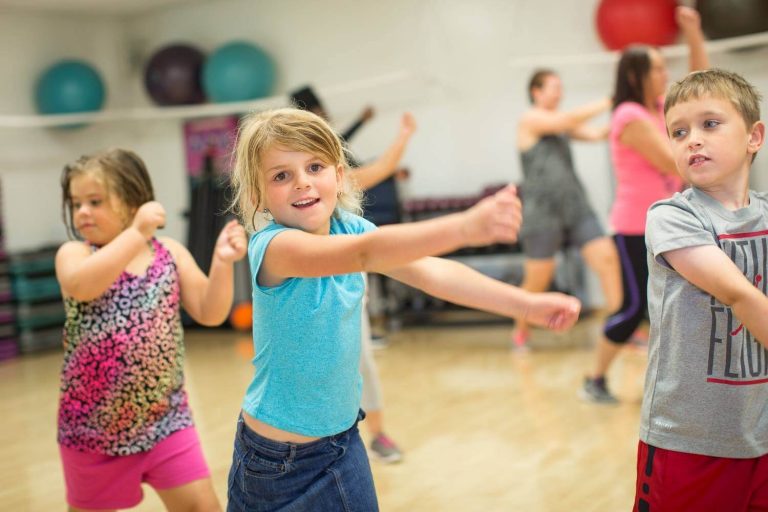None of us have lived through a global pandemic before and we all have a lot of question – our kids included. If you’re like us and looking for guidance in how to talk to your kids, West Bloomfield School District’s Mental Health Specialist, Lynne Swerhone has put together some sample answers to kids common COVID-19 questions.
What is the coronavirus?
- It is a virus that causes people to get sick. For some people, it feels a lot like having the flu. Sometimes people get a fever, cough, or feel it’s hard to breathe. Sometimes people only get a little bit sick or don’t feel sick. Sometimes people get sicker, especially if they are older or have other illnesses. Most people who get the coronavirus will get better. Sometimes people need to go to the hospital to get help to breathe and to get better.
- Since this virus spreads when people are close together, it is important that we stay home or stay 6 feet apart from other people when we are outside. Our hospitals and doctors can take care of people, but we want to make sure that they don’t have to take care of too many people at the same time, so they can focus on helping people get better. That’s why it’s important that we stay home so that we don’t get sick and so we protect other people from getting sick.
- People can get sick from all kinds of viruses and bacteria. Adults are here to help you and to take care of you if you get sick. If you eat well, drink water, and get lots of sleep, it will help your body fight off germs and will help you stay healthy.
Why do we have to stay at home?
“I know it is hard, but…”
- Even if we are healthy, it is important to stay home so that we protect our older family members and neighbors, and people who are already sick who might get even sicker if they get this virus. We might be carrying the virus even if we don’t seem sick. We all have to do our part to help other people until doctors and scientists can help make sure we all can be safe.
- If we stay home, we stay safe.
- If we stay home, we help the doctors, nurses, and other workers taking care of people because we are making sure that we stay safe and don’t get sick when we are at home.
- We don’t know how long it will last, but it won’t last forever. Right now it is important that we stay home in order to stay safe and to make sure that we don’t get sick or get others sick.
- I know this is really hard, and I really appreciate ________ (praise: you following directions, talking to me about this, being patient, helping around the house, etc.)
I’m scared!
“Yes, this is scary! But…”
- The best way to protect against viruses is to always wash our hands for 20 seconds, cough or sneeze into an elbow, and keep our hands away from our face unless they were just washed. It also helps if we clean things we touch a lot (doorknobs) and wash our hands after we touch these things. If we do these things we make sure that we are much less likely to catch the virus.
- It is scary, but adults are working hard to make sure that we can be safe, and we are here to take care of you and each other.
- It’s okay to be scared sometimes! Let’s do some breathing and listen to some music so we can feel calmer.
- It is scary when people get sick. That is why we have to focus on what we can do to keep ourselves and others safe.
- It is scary! Tell me about how you feel scared and what you are worried about.
- It’s scary, but we can focus on what we can do to help ourselves and others.
- We need to make sure we are listening to the scientists and doctors, so we have the right information. There are lots of people who are saying things that aren’t true, and we need to make sure that we are only listening to the correct information so we can stay safe.
I’m sad about ______ (school being over, school being closed, missing events)
- It’s okay to be sad. Let’s talk about it and what you feel like you have lost.
- I know you were really looking forward to that, and now that it’s not happening, that must feel like a really big let down.
- I know you worked really hard on that and now it’s not going to happen. It’s okay to feel sad about that. It shows how hard you worked and how much you cared about it.
- It’s okay if you don’t want to put on a happy face right now. Do you want to talk, draw, or write about it, or do you want to be distracted from it?
- It’s okay to be sad about school being closed and missing your friends. It’s hard not to see people. Can we think of other ways you can keep in touch with people, like writing a letter or an email? Can we schedule a video chat with friends?
Things to Remember
When discussing COVID-19 with your children, there are several things to remember that will allow for an open discussion that should reassure children and provide them with a sense of control, as well as the knowledge they need to protect themselves and others.
You are a role model. Children and adolescents take cues from the adults in their environment. If you can model a calm reaction to events, while also modeling that it is okay to have emotions, children will follow suit. Model dealing with uncertainty effectively, by focusing on the present moment and what is within your control, and children will learn to do the same.
Stick to the facts. Children and adolescents have many sources of information. By providing facts, you can reduce anxiety and increase a sense of control, and prevent harmful myths from spreading. Use age-appropriate language. Balance providing enough information to help with understanding, while avoiding overwhelming information or too much bad news. Focus on the good things people are doing to help each other through this.
Encourage emotions. Children are going through grief and loss, just like adults are – loss of routines, friends, events, and material things. Encourage and model effective coping by engaging in pleasant activities, expressing emotions creatively, exercising and taking care of your body, and keeping a routine. Allow them to draw or write out their thoughts if they don’t want to talk, and encourage play for younger children to process events. You may notice, in younger children, play may revolve around confinement or illness; this is okay and you can monitor, and address, any concerns or myths that surface during playtime. Go outside when possible to get sunlight and light exercise, which will improve mood. Keep a routine at home as much as you can, which provides a sense of normalcy. Identify ways to help others, which can also create a sense of control and agency.
Validate feelings. Communicate that your child’s feelings make sense. These feelings are valid based on their experience, their knowledge, and the reality of the world. Acknowledge that it is a scary and uncertain time for everyone, but that we can get through it together. Listen to their concerns and gently correct any myths or misinformation.
Additional Resources for Families
- CDC.gov
- National Association of School Psychologist
- National Child Traumatic Stress Network
- National Alliance for Grieving Children
Content provided by West Bloomfield School District
West Bloomfield’s priority is the academic achievement of all students as we educate them to be critical thinkers, entrepreneurial problem solvers, and communicators that are respectful of the diversity in West Bloomfield. I believe we have a great tradition of excellence that sets us apart from others in the way that we seek to meet the needs of each child, by the way that we celebrate our diversity and vehemently work to insure inclusivity. Our staff represents a tradition of excellence in teaching and service to children and families that has consistently garnered us honors and high ratings that continue to make a standard to be matched by others and a premier choice for families. This article was composed by Lynne Swerhone, WBSD School Mental Health Specialist.
Photo credit: West Bloomfield School District








